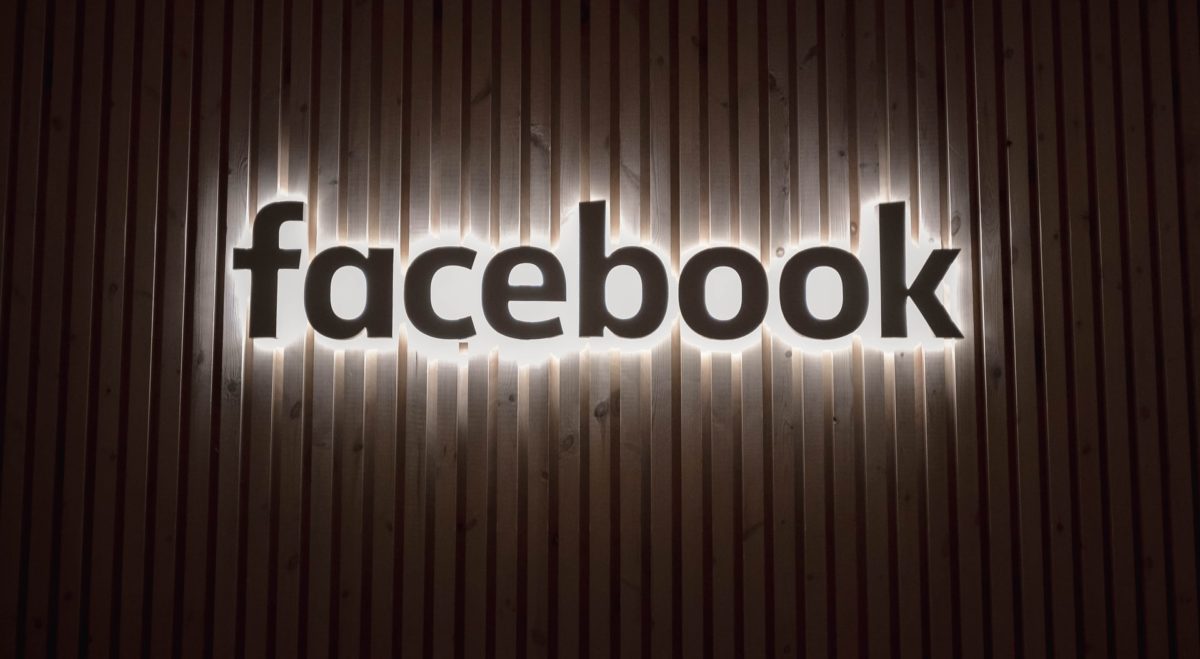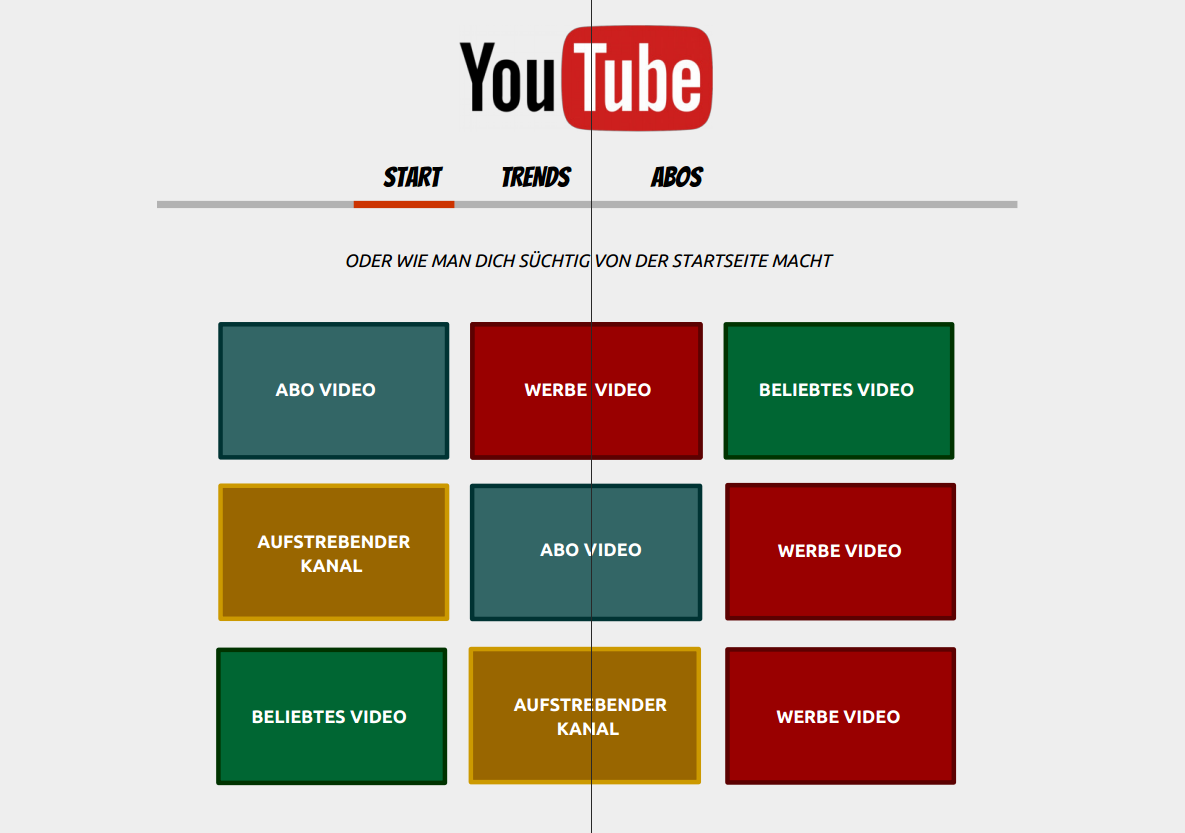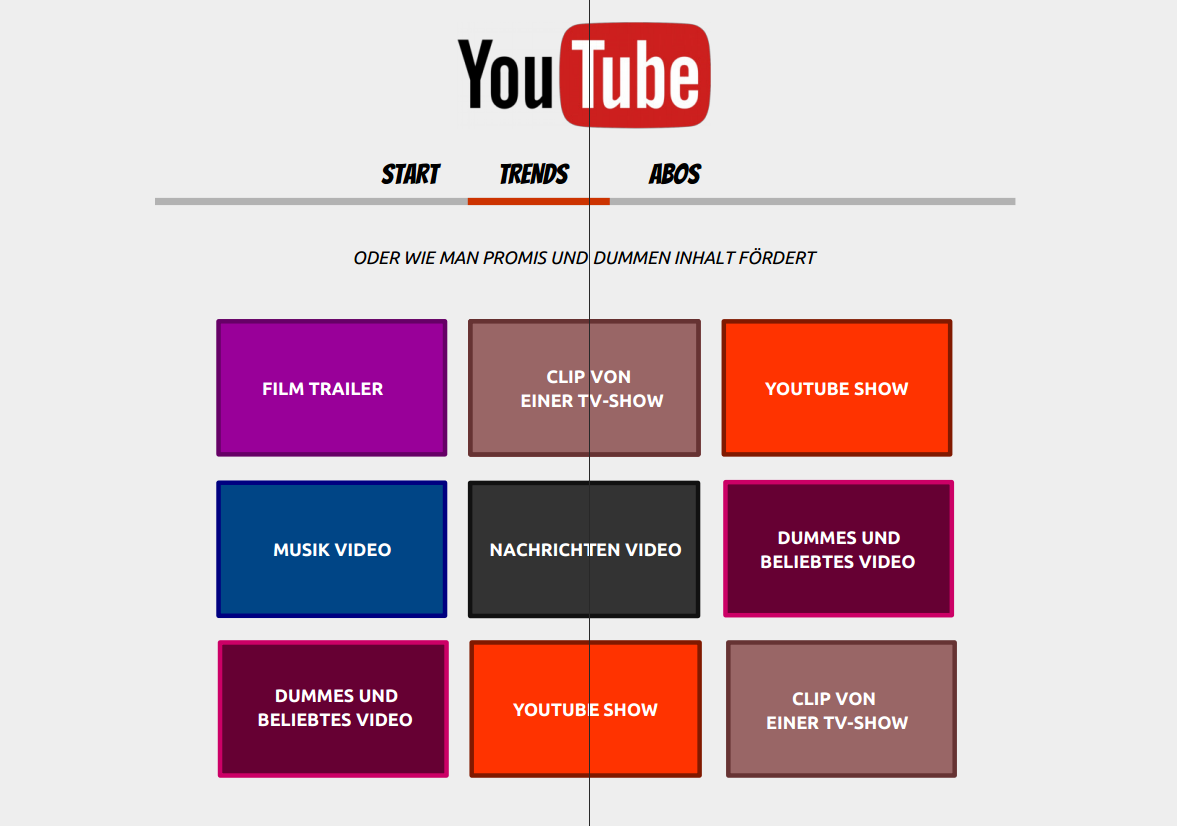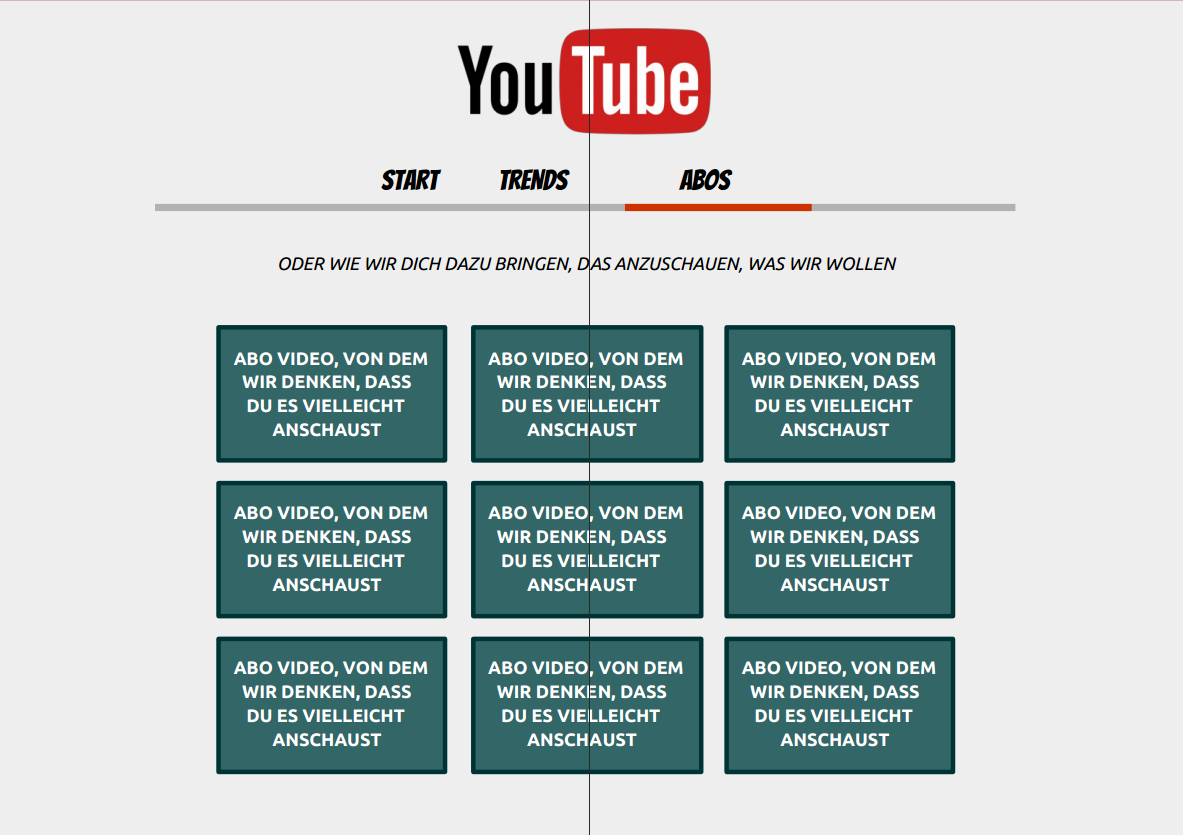Recently I was talking with a few friends about social media and the online platforms that people use for various things (keeping in touch with friends, educating themselves, entertaining, sharing projects/posts/images, or whatever).
I brought up this topic because I have a cool one Articles about Couchsurfing translated by Sasha, which made me think. Couchsurfing was originally a non-commercial host network that turned into a for-profit one and now cares primarily about its profits rather than its users.
As I thought about Couchsurfing's 'bad' behavior, I asked myself what on earth Facebook, Instagram, Google and other such services are doing and why do I still have an account on some of them?
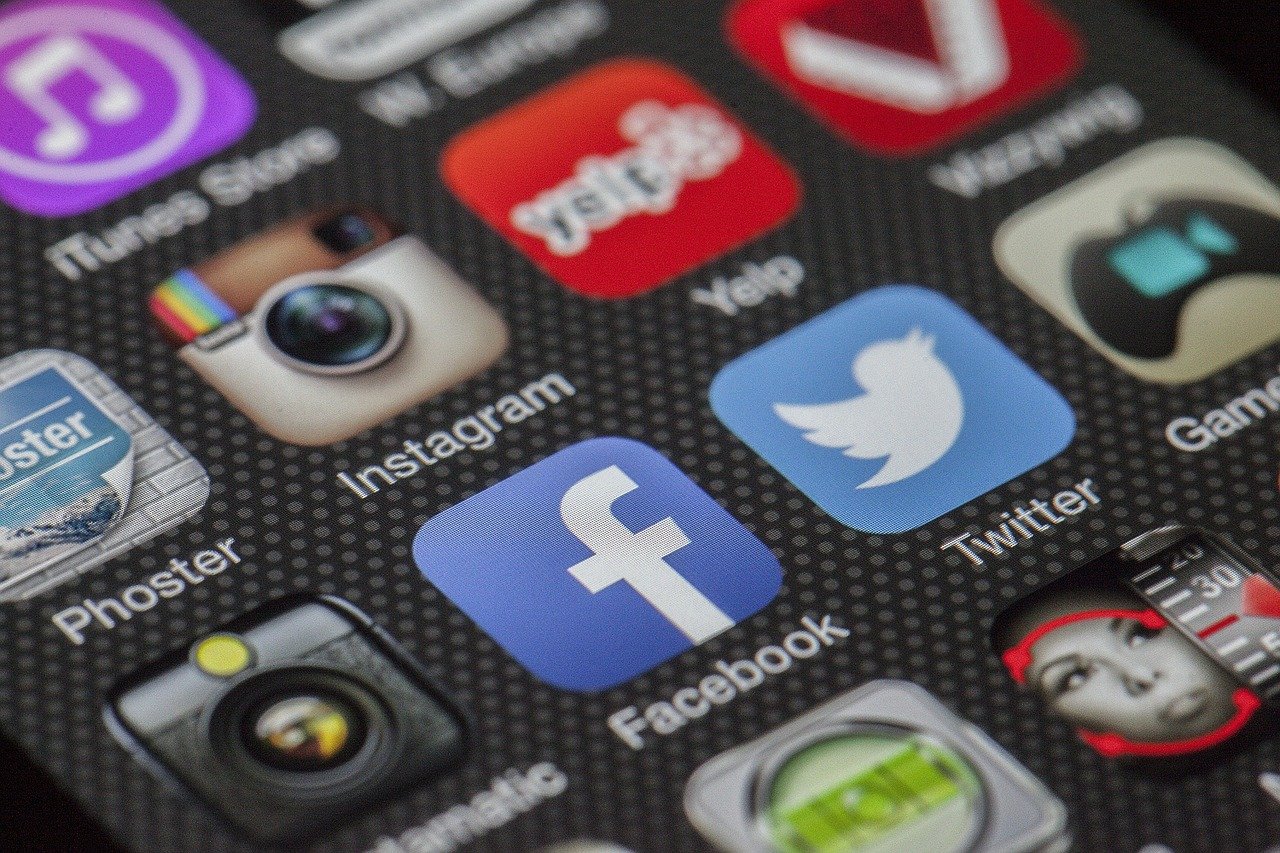
Of course, we should all know that the business model of these companies is to collect as much data about you as possible and then show you personalized ads (Those). This has many negative effects, as the focus of these so-called “social networks” is no longer social, but rather profit-oriented. This means that they will do everything they can to keep you on their platform, to show you as much advertising as possible, which ultimately turns people into stupid consumers.
And these companies have different methods to get and keep as much of your attention as possible so they can maximize their profits. There are so-called “attention engineers” who design/design these platforms like addictive slot machines. They have implemented various features like pull down, (to refresh the feed) which is like the arm of a slot machine that you have to pull down and then you may or may not get a reward (new posts that might be interested or not). Tristan Harris (former design ethicist at Google) explains this very well (unfortunately the video is in English):
Then there is the endless feed that you can scroll down indefinitely and there might be something interesting or funny that the Facebook or Instagram algorithm presents to you. Or the Like button, which gives you a dopamine rush when people liked your picture or post and you want to constantly check if you got a new like so that you keep coming back to the platform.
I also find the Snapchat Streaks example very interesting because I didn't know that at all (unfortunately the video is also in English):
All of these features are harmful because they absorb your attention to the maximum. And all because Facebook makes huge profits from the advertising it inserts into its platforms. Essentially, you trade your attention and data on Facebook for so-called “free” access to the network. Facebook then sells the space on their network for ads to show you. Based on the data they have received from you, they can personalize (tailor to you) the advertising to increase the likelihood that you will view and click on it. In return, Facebook receives huge amounts of money from companies that pay for this advertising.
So pretty shitty, right?
And in case you didn't know, Facebook owns Instagram and WhatsApp (and many other companies), so it's a huge company with around 2-3 billion users worldwide.
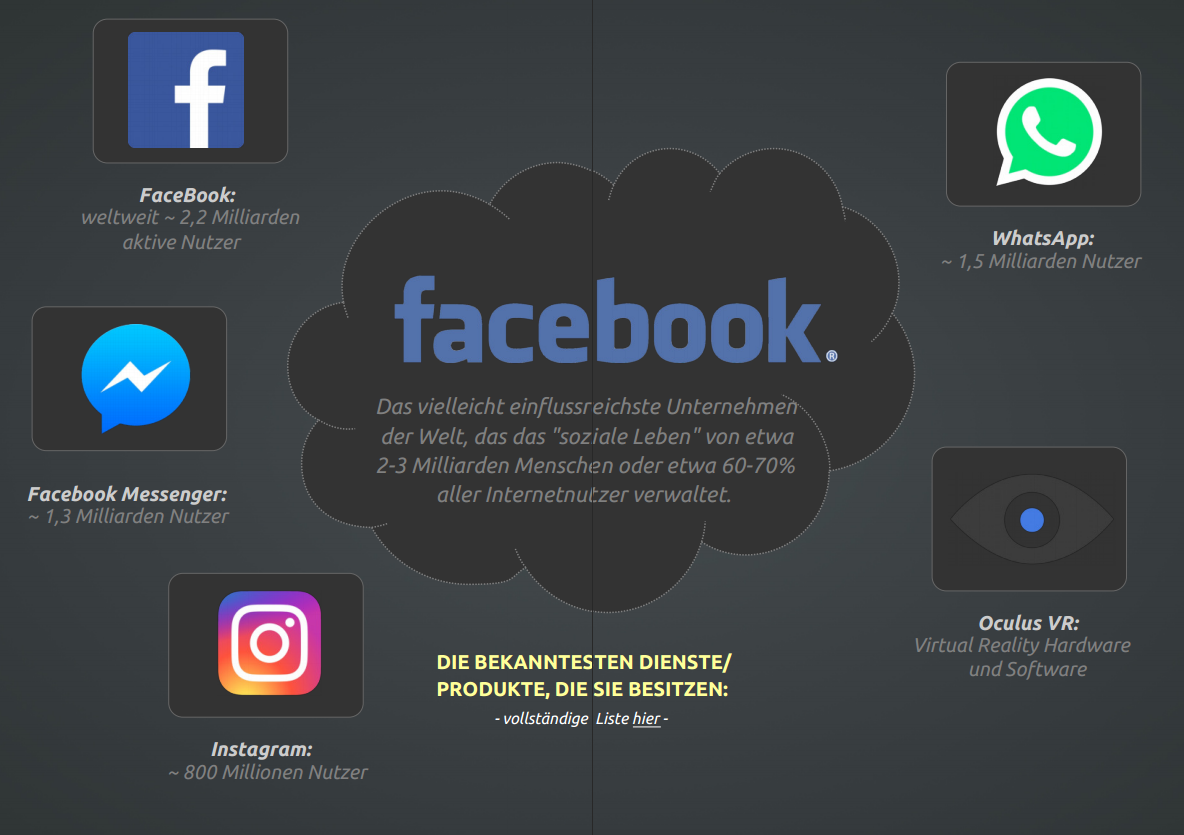
Have you ever looked at the stories in Instagram? There is an ad after almost every other story you watch.
When I thought about it, I felt like we are all basically being exploited (used for profit) by these platforms and we all know it (because of this Cambridge-Analytica-Skandal, this one Ted Talk or that Tedx Talk, this documentary about surveillance capitalism and many other such revelations) and all we do is look at it and accept it?
But it shouldn't be like that, right? Okay, maybe some people aren't aware that companies like this do these things (I'd suggest checking out the Criticism in Facebook or The dilemma with social networks but I'm very aware of it, so what do I do personally?
Will I still be on Facebook in 5 or 10 years? Or Instagram? Or couch surfing and paying money for my kindness in letting people sleep with me for free?
What will Facebook do in the meantime – what is their next business plan?
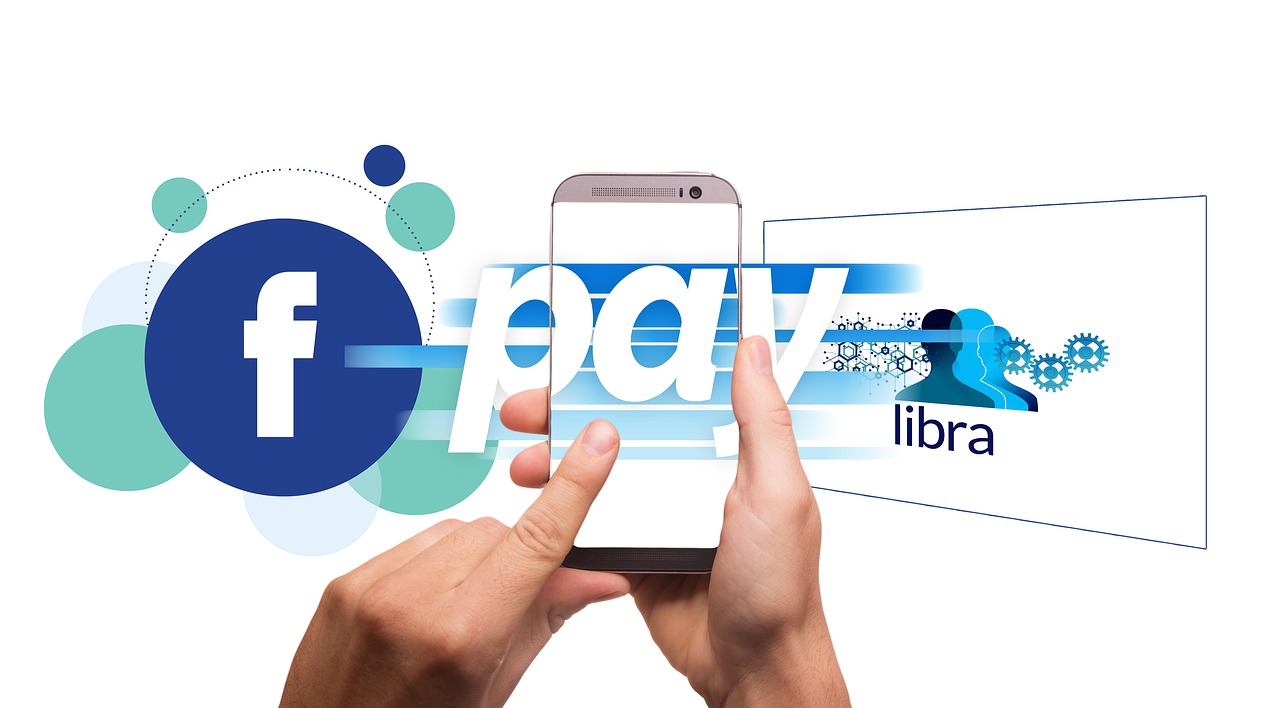
It turns out that Facebook has its own cryptocurrency (Libra) that will give them even more power in this world. And according to Wikipedia, users will be transparent: “Before using the wallet, you must identify yourself with an official ID. This means Libra users are transparent; every transaction can be assigned to the people involved.” (Those)
So Facebook will know when you gave how many Libra coins to whom. Not only will this be another way for them to collect even more data, but it won't solve any of the problems we have today because cryptocurrencies are just another form of trading that comes with a lot of problems like we see in the book The cause of most problems explain.
That's why I asked myself: What do I actually use these slot machines (Facebook and Instagram) for and is it really worth it?
To stay in touch with people?
To share images/videos/projects with others?
To educate myself by following some interesting sites about space and science?
There are alternatives for all of these things that are trade-free:
1. Stay in touch with people directly (messenger)
There are really great alternatives to stay in touch with people in different ways (messages, video calls, voice calls), and you can this article Read which explains in detail what types of communication there are (centralized or decentralized) and introduces some great options for staying in touch with your friends.
You can also search in the trade-free directory for “Messenger" or "Communication” and you will find many cool trading-free communication platforms.
I personally have Signal for 1 or 2 years now and even though it's not the perfect messenger (since the phone number is needed) I use Signal as my default messenger. There's an app on the phone and Signal also works on my laptop, which is pretty nice and I don't have to deal with WhatsApp anymore. Also, I'm currently testing Jami, which seems to be a very promising commerce-free messenger.
2. Share images/videos/projects/articles
You can use 2 ways to share images/videos/projects/articles etc. Either you rely on a social network or you have your own digital space in which you can express yourself. I have my own website where I post my thoughts, projects, pictures, etc. and I used Facebook and Instagram just to share these things there. I deleted Facebook and Instagram a long time ago and that's what I mainly use now Friendica as my social network.
Friendica is part of the Fediverse, which consists of many great social network alternatives and in trade-free directory These trade-free alternatives that don't abuse me behind my back are also listed:
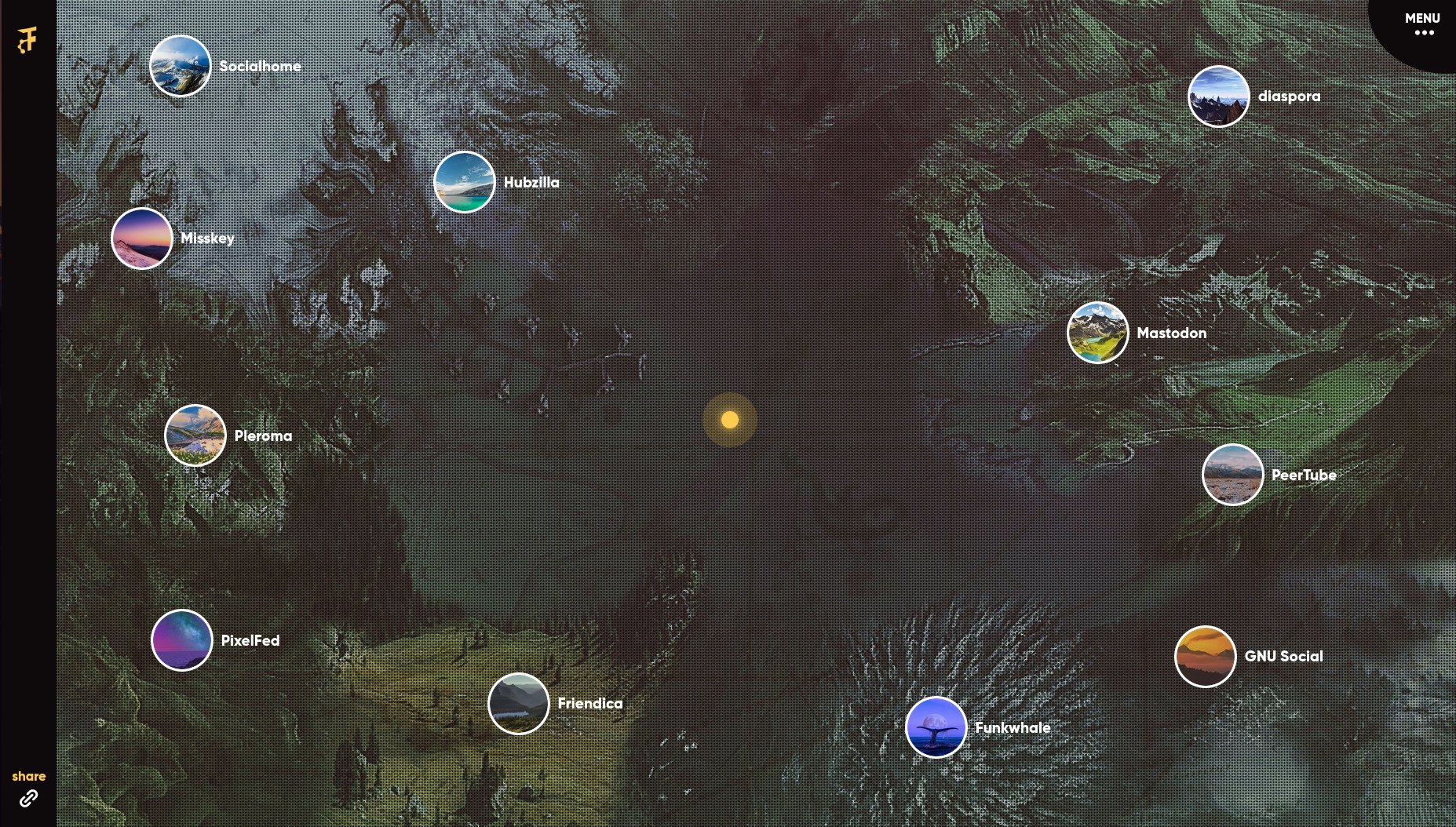
The Fediverse includes the Instagram alternative Pixelfed, the Facebook alternatives, such as Friendica or diaspora and the Twitter alternative: Mastodon. What's special about Fediverse is that these platforms can communicate with each other because they share a common platform Protocol use. This means that if you have an account on Mastodon, you can also follow me on Friendica or a PeerTube channel or Pixelfed account. This is super super cool and makes the whole social networking thing more decentralized.
And as a side note, there are even apps for Friendica/Mastodon so you can use it on your phone, like Fedilab or Tusky27. January 2022
What about YouTube?
Ahh, this is a difficult case. I have to talk about YouTube because it is the second most popular website in the world and part of the Google family:
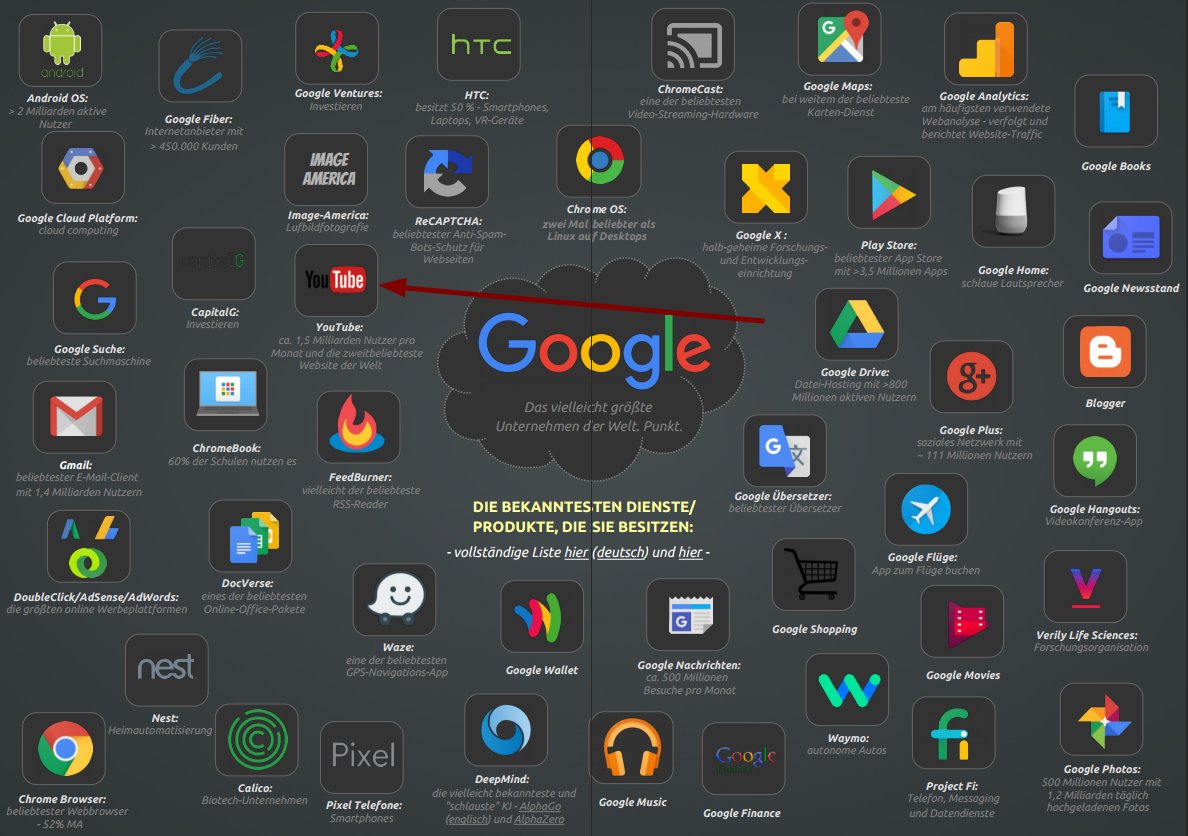
And what YouTube does is this:

So you might want to watch a single video, but wake up 2 hours later and realize you've watched a lot more videos because YouTube's algorithm recommends more videos to you. And these recommendations have a tendency to move from the calm, scientific videos to the crazy stuff, conspiracy theory videos and stupid content because these things keep people on the platform. In fact, 70% of videos viewed on YouTube are recommended by the algorithm. So if you watch a video of the moon landing, you might be suggested a video that claims the moon landing was fake.
And Tristan Harris also explains these methods very well:
The alternative is for example Invidious, which is a commerce-free front-end for YouTube without ads or data collection, and you can find some commerce-free Invidious instances here27. January 2022
Or a completely alternative trading-free video platform PearTube:
However, PeerTube just doesn't have as many videos as YouTube, so it's not easy.
One idea would be to link Invidious with PeerTube so that you could watch YouTube videos via PeerTube - that would be nice 😉
All in all: It's really difficult because there is some great content on YouTube, but also A LOT (an incredibly large amount) of garbage. The TROM project is trying to do something about it. And that brings us to education.
Education
The Internet is a great way to learn about new ideas and educate yourself on pretty much any topic that interests you. That's exactly what they're all about TROMNnews. These are essentially streams of digital media that are selected and collected to be made available to people. The goal is to select scientific, relevant and interesting content and remove the clickbait and bullshit content. In English there are curated news, videos, photos, illustrations and finteresting.
I created some of the tools in German and will work to keep them as scientific, relevant and interesting as possible. Then with the curated things in English and German I have 2 very good options for getting information.
So that’s basically it, but what about Couchsurfing?
BeWelcome and Trust Roots seem to be good alternatives to Couchsurfing, but the two are not that well known and therefore have fewer people using these platforms.
With all of this, I'm not changing anything
We have to be realistic and understand that these attention-seeking networks like Facebook or Instagram are a global thing. And I have to be realistic and admit that switching from Facebook to Friendica won't change the world.
However, I'm wondering if I should keep Facebook, Instagram and WhatsApp just because everyone else uses these networks?
So for me personally it makes no sense to continue to stick with these platforms.
And is it really true when you say that these individual actions have no impact on the world at all?
I mean, doesn't everything we see in the world start small?
Didn't Facebook once 2004 Started small at Harvard University? In Mark Zuckerberg's room in a university and then in less than 20 years it became a worldwide thing. What about Apple? Didn't Steve Jobs and Steve Wozniak start their company in a garage? (Those)
If you think about it, everything in the world starts small and then gets bigger or not (depending on many factors). That's why I think it's not only useful but also important to support alternatives.
Of course I know the situation is different now because of the mechanisms that keep people trapped on these platforms at the moment (so I don't see many people quickly switching from Facebook or Instagram to another network) but I want to ask myself again – should I continue to support these networks now and in the future?
Because it also does something to me and changes me over time. As we know, this change can be negative because of the addictive nature of these networks.
If you look into it, you'll find that the people who thought up these things (the engineers behind the like button, the pull down, the red notifications, the endless feed, etc.) are different from what they have created, distance themselves. In fact, they try to avoid spending time on these platforms as much as possible or completely because they know how they work and how addictive and harmful they are. (Those)
It's not about living completely trade-free
We live in a world based on trade and that is a fact. And we will not live in a trade-free world tomorrow either – unfortunately. But what we can do is take small steps in that direction.
Should Wikipedia start charging people money if they want to use it, just because that's how the whole world works right now? Or should Doctors Without Borders, instead of treating everyone, start discriminating against a certain group of people? Of course not.
That's why I think I prefer to use alternatives, even if everything is new and I don't know any people on Friendica or few/none of my friends have Signal. What I can do is talk to my friends and family, tell them about the questionable things Facebook and Google are doing, and show them how easy it is to use trading-free alternatives.
After all, I created a Facebook account at some point, right? And before that on ICQ? And at studentVZ before that? And I've always managed to switch from one to the other - so why shouldn't I be able to switch to Friendica?
It's almost impossible to escape
Let's be honest. This is what a typical smartphone screen probably looks like these days:
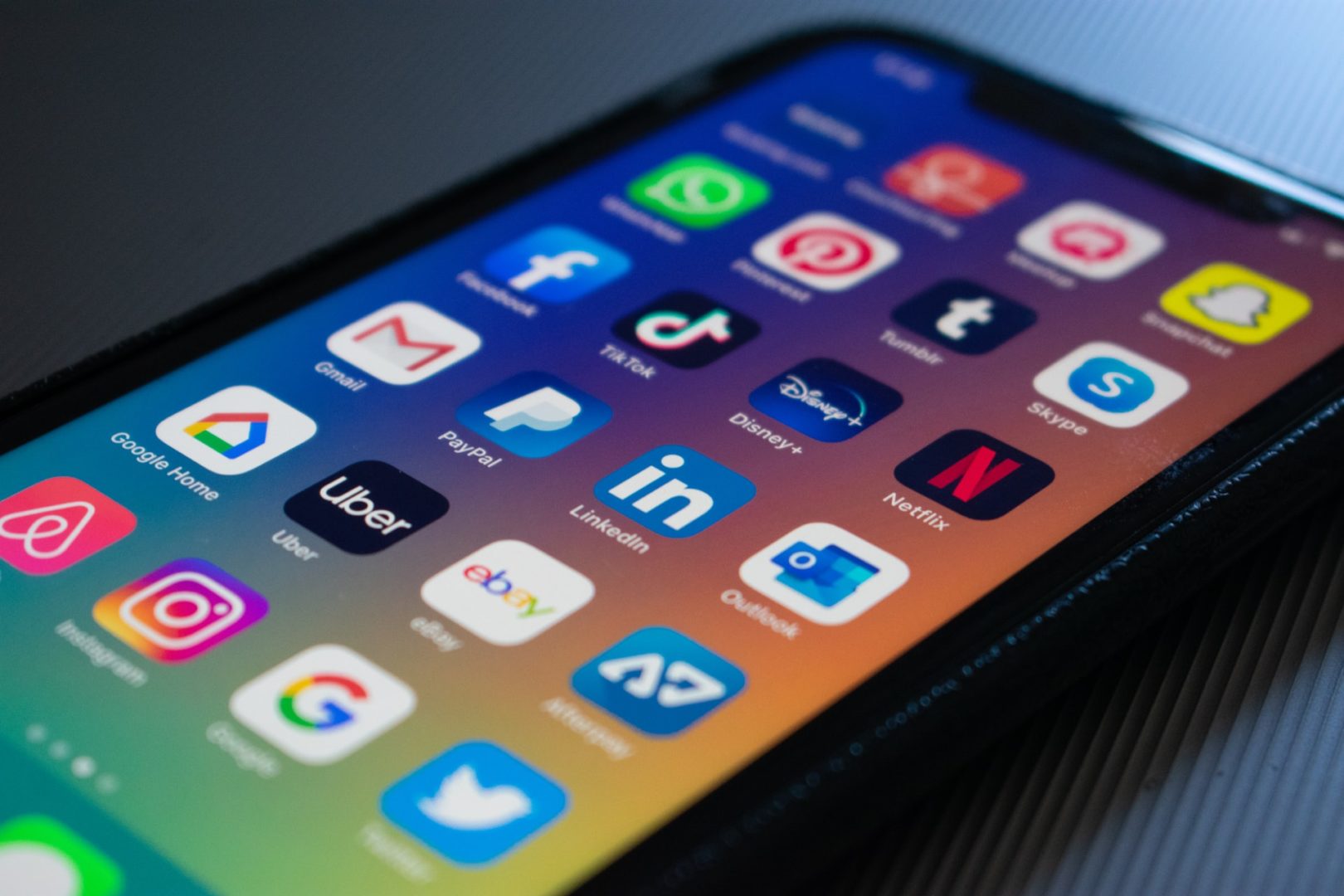
Chock-full of trading-based apps, and I can tell you a story about it:
I have a little sister and she is completely caught up in Tiktok and YouTube loops (stupid videos that the algorithm recommends to her based on what she watched). It's hard to reach such small children, especially when there are such cool videos from them Lisa and Lena There are...but maybe they'll understand these things as they get older. But maybe not. I don't know it.
But that is not the point. It's about talking about these problems and showing alternatives.
last words
For me personally: If I can't find a host in a city I want to visit with BeWelcome or Trustroots, then so be it. 50 years ago I couldn't send a message from Germany to Australia over the Internet. I also had the experience of not being able to find a host in a city through Couchsurfing, even though I contacted many.
But if I and others and more and more people use these better (trade-free) networks that don't want to make a profit from us, then it's all the better for all of us.

Finally, I would like to give you the book “The cause of most problems” that explains data and attention trading in detail, and I want to ask you:
Where do you draw the line?
What else can these trading-based platforms afford? How far can they go with their methods to make a profit from you?
